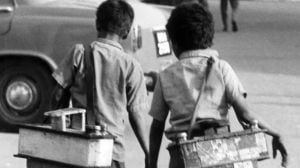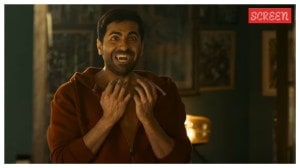Let politics take a back seat
The Citizen’s Alliance was formed with the aim of addressing the critical issues that affect the citizens of this country...

The Citizen’s Alliance was formed with the aim of addressing the critical issues that affect the citizens of this country — malnutrition, poverty reduction, education, universal healthcare, social uplift and welfare of the poor, amongst other objectives. For its success three determining factors were necessary: the identification of issues of national and social importance; the ability to mobilise resources and enable change; and a set of like-minded individuals from political parties, the government, the arts and sciences and NGOs who would act as mentors to propagate the message of the alliance. The alliance had to be broad based, and representative of the various economic and social strata of society, and the demographic uniqueness of India. Today’s representatives of this alliance, I believe, bring experience and knowledge to build a framework that will make a difference to the people of India.
This committee comprises MPs from the NCP, the Congress, the BJP, the BJD and other parties, theatre artists and other individuals — all of us working together to try and frame policy to address issues that plague India. Our aim is not one-upmanship or competition, but rather solving problems and using our collective wisdom to make a difference. Our political beliefs or ideologies have not come in our way of working together, because we have the same objective. We have learnt to talk, rationalise, delegate and be held accountable for the roles given to us in this project. Our success, hence, will be determined by our working together as a team and delivering on our goals. Any personal agenda will not help any of us, and will create more problems than solutions. We work as a dedicated team of MPs to achieve a greater objective.
A lot has been said of the initiative taken by this alliance to combat malnutrition, and the work that has gone into it, to make the citizens aware of this issue of national importance. We have traversed through many parts of India to observe the effects of malnutrition, and visited the various Integrated Child Development Scheme centres (ICDS). Whilst some of what we have seen is shocking and needs immediate intervention, there are successes achieved by the local and state governments. Our candlelight vigils, debates at public forums and interviews in the national press can create awareness, but that is all that can be achieved.
The real work is in the implementation, for which the participation of local representatives at the panchayat level, the state representatives and the national representatives is a must. We have to ensure that schemes are structured to give ownership at the local level — to the people who are the best judges of what is required — and provide funds that will help achieve clear-set objectives. This is the crucial part of the relationship, as policy without participation at the grassroots level will never work. Be it the panchayats, the local health or education committees, all must be accountable for ensuring the success of the projects, and for enrolling more volunteers. They understand what is required, have access to the local authorities and through a general guideline that is laid down at the national level know where, when and what to do.
Our job as representatives of the people in Parliament or in the state assemblies is to ensure that policy is made, resources are allocated and effective implementation carried out with accountability. This collaboration has to start at a local level and permeate to the top. It must involve citizens, elected representatives, NGOs, private concerns and government bodies. Politics has to take a back seat, while we work towards bringing economic and social benefits to the people.
Today, the desire to live better than yesterday drives our people. We have to understand and find solutions to pressing matters like malnutrition for this desire to be fulfilled. Public-private partnerships, citizens groups, NGOs, government institutions have to work together to garner the trust and confidence needed to achieve the objectives laid down by the government. It is only by working together that we can solve the problems of population control, poverty, affordable healthcare, sanitation, food and water.
There are challenges before us; they will always be there. Most MPs in parliament realise that the scepticism about politics in general has to be done away with, by not becoming part of the system, as most people tend to believe, but rather by questioning, debating, and stating varying points of view to ensure a difference is made to India’s future. In essence, we have to challenge the system and think out of the box. It is not easy, but if we are collectively determined, it is achievable. I am optimistic. That is why we were sent to Parliament, and I am sure that is what we will ultimately deliver: a better future where we all work together as a team.
The writer is a Rajya Sabha MP
express@expressindia.com





- 01
- 02
- 03
- 04
- 05


























